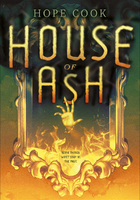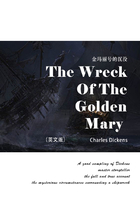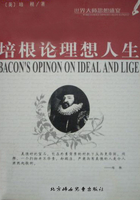In the passageway Alex looked in either direction and saw Tanya step out of one of the compartments and move toward the samovar. He walked toward her, passing some open compartments. In one of them, the fat Russian couple he had seen in the queue was munching sausages from a makeshift plate of oily paper. A bottle of vodka stood on the table. The man saw Alex watching, and kicked the door shut. Alex was determined to not look inside the other compartments as he passed, although his eye quickly took in the layout of the carriage itself.
There were twelve compartments and, along the outside wall of the passageway, a number of little pull-out seats which were now pushed tightly against the wall. At either end of the carriage were lighted signs reading 'Toilet.' In the passageway he recognized the music that was playing in some of the compartments. The song was "The Yellow Rose of Texas." Dimitrov had a propensity for American popular music, and the dacha had rung with the familiar sounds.
"The restaurant car is in the other direction," Tanya said, wiping her hands on her smock.
"Thank you," he said, retracing his steps, peeking into his own compartment again. The woman had not moved. Her eyes were still fixed on the window, though nothing was visible except her own reflection. As Alex passed the toilet, a neatly dressed man he had seen in the queue emerged. He had discarded his bowler hat, and he was quite obviously British.
"Bloody awful," the man said. He seemed to be in his late fifties, thin, with a network of little red veins spread over his cheeks and nose. "The bloody thing's stuck. I'll have to tell the attendant."
"Will they fix it?" Alex asked with vague concern, remembering the faulty loudspeaker in his compartment.
"They're not much for fix-its." The Englishman lowered his voice and winked. "Sometimes they do it deliberately, you know. It's all part of their grand design."
"Grand design?"
"To test the outer limits of our ability to tolerate hardship. A broken toilet provides an excellent model."
"Well then, we must fight back." Alex smiled.
"How?"
"Shit in the corridors. Pee in the tea glasses."
The Englishman coughed and cleared his throat. "You're American," he said.
"We're all a bit uncouth."
"We'll have to chat a bit. I have a sister in San Francisco."
He turned and passed Alex towards Tanya, who was now shoveling chunks of charcoal into the brazier. Have I been too rude? Alex thought. The man could be a conduit for what he knew. He filed away the idea. Had he the right to destroy the man's innocence? It was a new moral question.
Pulling open the heavy steel door, Alex felt the blast of icy air as it poured through the rips in the rubber coupling sealing. From the warmth of the corridor, he felt as if he had just walked into a refrigerator. He reached for the handle of the opposite door, feeling his fingers stick to the cold metal as he struggled to open it. Before he could pull the latch free, he heard a door open behind him, felt the sudden whoosh of air and the clang of heels on the metal flooring. He turned and saw the somber face and close-cropped red hair of one of the security men who had been in the Chaika from Dimitrov's dacha. The train must be crawling with them. Could I have believed they would let me go free? Dimitrov is hardly a fool, he thought, deliberately squeezing through the door quickly, and letting it slip back in the spy's face. I will not think about it, he told himself, knowing that it was getting increasingly difficult to put up with the signs of Dimitrov's surveillance. In the restaurant car, he ducked into the toilet and listened, his ear cocked against the door, until the red-haired man passed.
The restaurant car had the same old-fashioned look as his compartment. Heavyset women wearing brown aprons and a kind of cloth tiara moved about, serving the diners in the half-filled car. Toward the far end Alex spotted the red-haired man, his nose buried in the large menu. Vaguely uncomfortable and disoriented, Alex wondered if he was supposed to wait or to seat himself. Finally, a small, officious man came up and tapped him on the shoulder. Alex held up a single finger and the man led him to a table in the center of the car near the man in striped pajamas who was drinking borscht from a stainless steel bowl. A drop of red juice was hanging from his chin.
Alex smiled politely. "Is it good?" he asked in Russian.
"Nyet," the man said with some annoyance. Picking up the lacquered menu, Alex began to thumb through it.
It was fifteen pages thick. Hundreds of items were listed, a compendium of every conceivable dish available in the Soviet Union. His eye picked out the word "Pelmeni," and he suddenly remembered his grandmother's specialty, minced meat in envelopes of dough, which he had eaten with huge globs of cream and dabs of mustard sauce.
He could feel the yearning in his stomach as the waitress arrived. "Nyet," she said flatly when he asked for the dish.
He was disappointed. Like a stone thrown into a well, the pelmenis had stirred the deep waters of nostalgia. Many of the dishes listed were part of his grandfather's stories. Salmon caviar covered with cream and honey and sprinkled with bilberries; bear steak; cream of reindeer milk with wild raspberries laced with kvas; kissel, a liquid jam made of cranberries. He was sure he had tasted that, eaten it with a spoon.
"I'll have the herring with vegetables," he told the waitress.
"Nyet," she said.
"And the roast pork?"
"Nyet." She seemed to be enjoying herself.
"And the fried liver?"
"Nyet."
He was perversely tempted to read the entire fifteen page menu. "Nyet seems to be the operative word," he said.
A woman giggled behind him. Turning, he saw the little woman who had worn the pink coat and the bunny hat. Behind rimless wire glasses her blue eyes sparkled with laughter. Her hair was gray with a liberal coloring of blue rinse, giving it a peculiar sheen in the yellow-lit car. She wore a primly cut, high-collared black dress, and a single strand of pearls. She must have been about sixty, the perfect maiden lady. Beside her on the table was a book entitled Eurail.
"They do have borscht and stew," she said in an American accent.
Alex looked about the restaurant car as if to confirm her observation. Across the aisle he observed the large-faced man whom Zeldovich had identified as General Grivetsky. He was eating a slightly burned omelet and drinking great quantities of red wine from a water tumbler.
"And omelets," the woman said.
"I'll start with the borscht," Alex said. The waitress walked away indifferently, her big haunches packed firmly beneath her tight smock.
"The Eurail book offers subtle forewarning," the little woman said. Alex turned to her again. She was sitting alone, drinking a cup of tea. "The trains run on time," she continued, "but the restaurant car is beyond hope."
"That's why it's so empty?" he asked, relieved at the easy way Americans befriended each other.
"Most of the Russians supposedly eat in their compartments, except these brave fellows. And us."
"May I join you?" Alex asked, suddenly eager for the company of an American, feeling his foreignness in what he had begun to regard as the hostile environment of the restaurant car. He moved to her table and noticed the red-haired man's eyes flicker at his movement.
"Alex Cousins," he said, putting out his hand.
"Mary Peterson, Miss Peterson," she responded, smiling primly, putting a delicate cool palm in his. "Youngstown, Ohio."
"Bethesda, Maryland."
"First trip on the Trans-Sib?" she asked.
"Yes."
"Second time for me. I did it in 1960 on the way to Australia. It was all steam then. Now we don't get steam, even after Lake Baikal." The waitress arrived with the borscht annoyed that Alex had changed his table. He began to eat. The borscht was good.
Why not? he thought. They invented it.
"Exciting, isn't it?" Miss Peterson said, looking out of the window. He followed her eyes, seeing nothing but her reflection. She watched his mirror image, then directed her conversation toward it, as if it were a wholly different person.
"I'm getting off at Khabarovsk, going just for the ride. Then I'm flying back to Moscow. Foreigners have to change there for Nakhodka. They don't let us go to Vladivostok."
"Yes, I know."
"The line goes five thousand seven hundred and seventy eight miles to the Pacific. That's a general term, since technically it's the Sea of Japan. Imagine, nearly six thousand miles. We pass through eight time zones and, if we stayed the whole way, we'll be making eighty-three stops and go an average speed of thirty-seven miles per hour."
"My God," Alex said, "you're a walking encyclopedia."
"I'm a travel freak," she whispered, obviously proud of her knowledge. "When you work in a library, you take many journeys in your mind." Her eyes sparkled with alertness.
Alex eyed her coolly. Perhaps she might be persuaded…. He checked the thought. Had he the right to create new victims?
"You must be a doctor," she said, looking at the medical journal that lay unopened beside the plate of black bread that had come with the borscht.
"Yes," he answered.
"You must be here on some medical meeting."
He wondered if Dimitrov's admonition to be cautious extended to nice gray-haired American ladies traveling alone. He decided again to defy their paranoia, at least in this instance. Or was she one of them?
"I was," he lied. "This leg is strictly for pleasure. My grandfather helped build this railroad before settling in Irkutsk. My grandparents came to the States just before World War I. My father came back as an interpreter for General Graves."
"So that accounts for your Russian?"
No, she is an innocent, he decided. They could hardly have manufactured her.
The little man in charge of the restaurant car eyed them curiously. Alex saw him talk to the red-haired man, then move toward their table. Standing over them, he quickly wrote out a check and put it before the gray-haired woman, who ignored it. The stocky man continued to stand over them. The sweat was gathering on his upper lip.
"I'm terribly sorry," he said in Russian. "We expect a large crowd. Would you pay the check please?"
"What did he say?" the woman asked pleasantly.
"He said you should pay the check. They need the space." Alex looked around the half-empty restaurant car. No one was waiting.
"I'll be happy to make room when the parties come," Miss Peterson said politely.
Putting down his spoon, Alex looked up at the man, who lowered his eyes. He appeared frightened.
"The lady said she'd be happy to leave when your people come," Alex said, dipping his spoon again into the thick red mixture before him.
"I need the space now," the man said. His voice had a whining, pleading tone. "It requires preparation."
"What did he say?" the woman asked again. She opened her large pocketbook, pulled out a Russian dictionary, and began thumbing pages.
"He says you should leave now," Alex said. He watched the resolve grow in her face, her chin rise, her lines tighten.
"I'll do nothing of the kind."
"Of course you won't," Alex said. He turned toward the red-haired man, who was eying them impassively, and gestured a figa. The man stopped chewing for a moment, his eyes narrowing.
"What are you looking for?" Alex asked the restaurant manager. "Bug off."
Then he translated it for Miss Peterson. "Bug off," she repeated. Turning angrily, he walked back to the red-haired man, who stopped chewing again to listen. The General turned toward them, his mouth filled with omelet. The man in pajamas at the table in front of him continued to slurp borscht with unconcerned abandon.
"They're usually quite rude to each other, but rarely to foreigners," Miss Peterson whispered.
"Pay no attention to it," Alex said, understanding why they were being intimidated.
He continued to eat his borscht. The train had apparently reached a stable speed and the bouncing splattered the borscht on the tablecloth with steady regularity.
"When they built the railroad, they didn't stagger the fittings but made them parallel instead. That's why we bounce instead of sway," Miss Peterson volunteered. Across the aisle the General drained the dregs of his glass.
"You seem to know a great deal about railroads," Alex said.
He was nearly finished with his borscht and was ready to order a main dish, the inevitable stew. Where was the waitress? She had been out of sight for at least ten minutes.
"I travel the rails whenever I can," Miss Peterson said. "People who don't travel trains miss all the fun."
"Waitress," the General's voice boomed out. "Where is the waitress?" He stood up, a big, heavyset man, his face flushed as he looked in either direction and made his way to the kitchen. "What kind of a train is this?" he shouted.
The manager emerged, the surly waitress behind him. "This is a disgrace," the General's voice boomed. "I want more wine."
"Good for him," Miss Peterson said. "The squeaky wheel gets the most oil."
With a frightened look at the red-haired man, the harassed manager responded quickly to the General's obvious authority, rushing toward him with another bottle of wine. With a shaking hand, he pulled out the cork and poured wine into the General's glass. The General nodded, picked up the filled glass and lifted it in Alex's direction.
"And take care of those Americans," he said. "What kind of hospitality do you offer here? You are a disgrace to the country, to the railroad." He drank the glass off in one swallow.
The little man came closer, nodding obsequiously, as Alex rattled out orders for more tea and a plate of stew. The waitress went to the kitchen and was back with the food almost immediately.
"And a bottle of wine," Alex added. In a moment the wine had been opened and poured.
"I drink to you, sir," Alex said to the General.
"By all means," Miss Peterson said, lifting her tea glass.
"And to you," Alex called to the red-haired man, who looked up, scowling. Alex drank the wine quickly. It was too sweet, but he was grateful for the way it soothed him. The waitress had put a wine glass in front of Miss Peterson, but when he attempted to fill it, the American woman covered it with her hands and smiled benignly.
"Dear no," she said, with the innate primness of the maiden lady, although there seemed in her an uncharacteristic streak of toughness. He felt drawn to Miss Peterson, whose sheer innocent enthusiastic Americanness was like a whiff of freedom in the paranoid Russian atmosphere. Even her quotations from Baedeker were oddly refreshing.
"The Trans-Siberian Railroad was begun in 1891, in the time of Alexander the Third; Nicholas the Second turned the first shovelful of earth in Vladivostok. I always believe in knowing about the history of things when I travel. Don't you agree?"
He hesitated, wondering if he would be triggering an endless history lesson. "Yes," he said finally, sipping his wine.
"Are you going all the way to Nakhodka, Dr. Cousins?" she asked.
"Yes," he whispered. He had wanted to say, "Hopefully." Will they ever let me reach that destination?
"Then you'll be taking the boat to Yokohama."
"Yes." Please, yes, he thought.
"I took it in 1960. It was called the Khabarovsk. Same name as the city, both named for a man, actually. He was a fur trapper and trader, quite ruthless." She sipped her tea. "But I'm more at home on trains than on boats. On this trip I've gone straight through from Victoria Station."
Alex stole a quick glance at the red-haired man. His long conversation with Miss Peterson might be putting her in danger. But he felt incapable of rudeness.
"The curious thing is their wide-gauged track. They actually thought it would save them from invasion. So now, when you cross their borders, giant cranes have to change the axles of your train. Quite ridiculous, don't you think?"
"Russians," he mumbled, remembering Dimitrov.
"They didn't foresee airplanes," she continued. But Alex was no longer listening.
The restaurant car was beginning to fill up now, although all the seats were still not taken. He noticed that the man who ran the car seemed to be deliberately leaving the two seats at their table empty. The man in pajamas finally rose and disappeared through the exit. The din increased as more people crowded into the car. Relaxed by the wine, Alex watched the faces.
In the Yaroslav railroad station, under their heavy coats, all the people had seemed nondescript. But now he could read in their faces evidence of the vast spectrum of peoples that occupied the Siberian land mass. Skin tones varied from the pinkness of the European White Russian to the reddish-darkness of the Mongol, the olive tones of the Armenian, and all the variations in between. He saw eye shapes varying from the Caucasian through the Tartar to the Asian; round heads, flat heads, wide fleshless noses, some aquiline noses. It was the oddest assortment of humans he had ever observed in a single place. He marveled at the diversity, remembering Dimitrov's boast: "If we can control this hodgepodge, we can control anything."
"The Americans are not too bad at it, either," Alex had replied.
"You melt; we paste," Dimitrov had responded.
"Oh dear," Miss Peterson said suddenly, looking anxiously toward the group of waiting people. "Now, I am taking up room." She looked at the check and fished an Intourist food coupon from her bag, placing it carefully on top of the check.
"You will see that it gets into the proper hands, Dr. Cousins?"
"Of course," he said. He stood up to make way. She was remarkably small at full height, slender and compact. She held out her hand.
"I am sure we will see each other again," she said. "We should have plenty of time for a nice long chat."
"It would be my pleasure," Alex said, conscious of his insincerity. Watching her move down the aisle, he felt mildly disturbed. The food lay like lead in his stomach. He looked quickly again at the red-haired man, who averted his eyes.
"Damn," Alex mumbled, throwing some kopecks on the table. He started toward the door of the restaurant car, pausing briefly to confirm that the red-haired man was following him.
"Beware of the jackals," Dimitrov had said. But wasn't it he who had set them on Alex in the first place?















